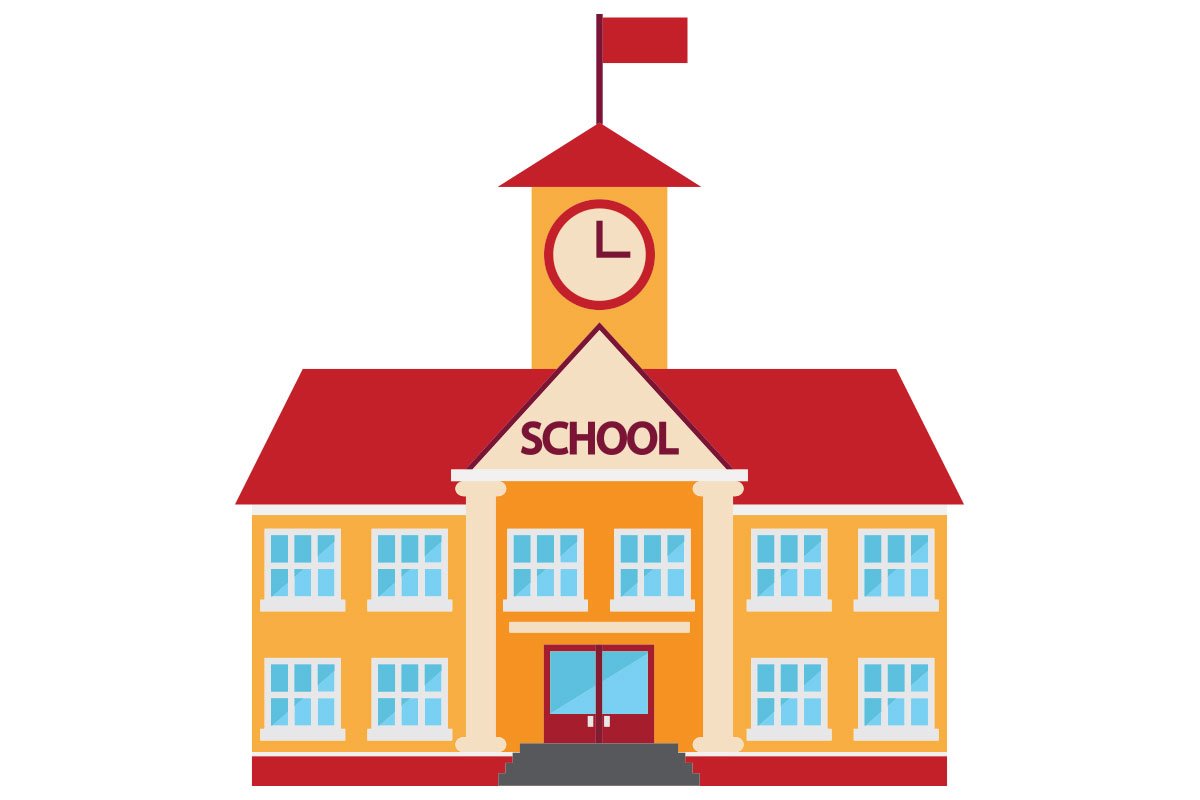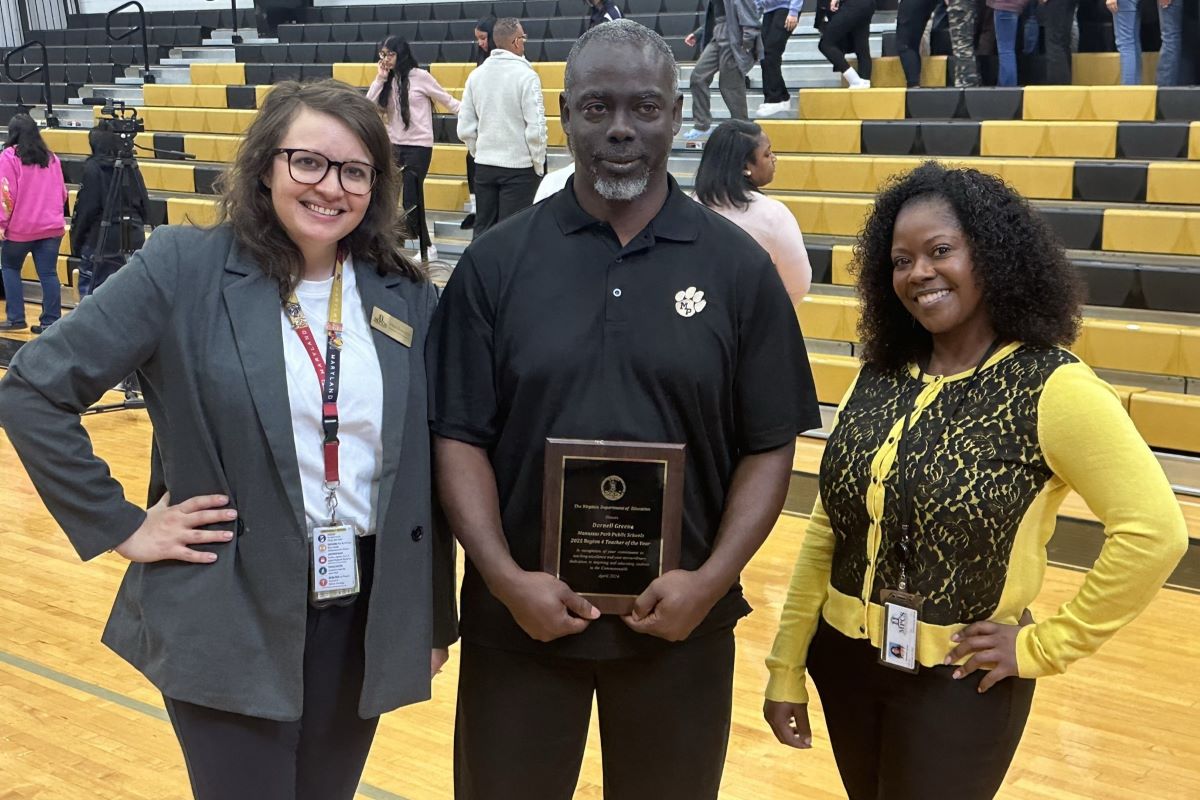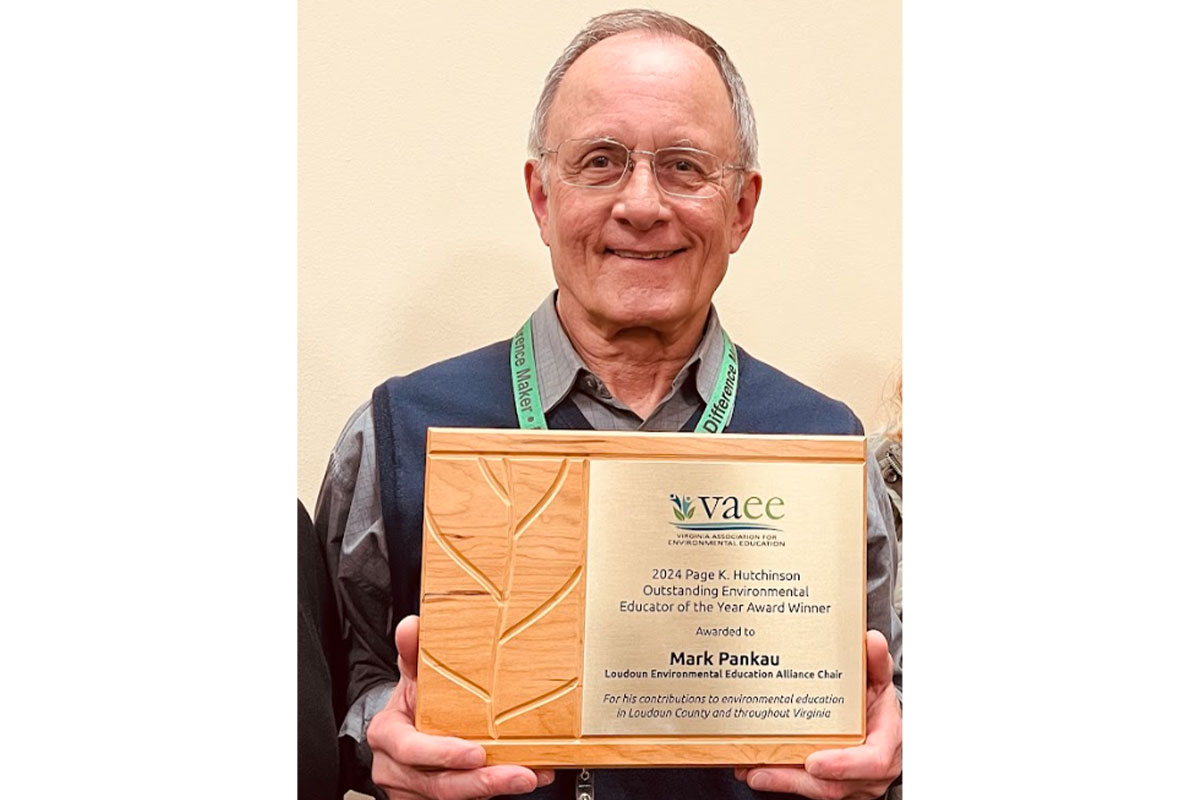
What is happening in the first few months of the new education secretary’s term is emblematic of what is going on across the country. Uncertainty. Divisiveness.
There is serious resistance to Secretary of Education Betsy DeVos. There is deep concern about her lack of experience as an educator. She was booed at a graduation ceremony; she has been harassed by the press and others. She seems to be under fire wherever she goes.
She is following a mysterious agenda about what she is planning to do to meet Trump’s campaign goals, as she promotes choices for students and their families by using a voucher system to get into and build up charter schools.
According to an opinion article in the Detroit Free Press, DeVos comes from a background as a sort of lobbyist in her home state of Michigan in the service of free market education reform—she served as chairwoman of the board of the American Federation for Children, a school choice advocacy group; was a board member of the Acton Institute, a think tank whose stated mission is “to promote a free and virtuous society characterized by individual liberty and sustained by religious principles”; along with being a member of the board of the Foundation for Excellence in Education, a think tank on education reform founded by Jeb Bush. According to the DFP article, “Michigan tolerates more low-performing charter schools” than many of the 43 states and the District of Columbia with charter school laws, “and it lacks any effective mechanism for shutting down, or even improving, failing charters.”
The DFP column continues: “In other states, poor performers are subject to improvement efforts, or sometimes closed. By contrast, once a school opens in Michigan, it’s free to operate for as long as it wants, and is seldom held accountable by state officials for its performance. Authorizers, often universities, oversee operation according to whatever loose standards they choose … Michigan leads the nation in the number of schools operated for profit, while other states have moved to curb the expansion of for-profit charters, or banned them outright.”
Is this what’s coming to other states across the country? No one really knows.

DeVos is in a position to advise the president on policies, programs and activities related to the education of the country’s youth, to move forward and figure out how to make the system work for the kids that they serve.
So far, she’s getting low grades for missing that target even as she goes before committee hearings to defend her plans, and she is receiving hard criticism from both sides of the aisle.
Things don’t appear to be getting better for her, and public and charter schools in Northern Virginia are either holding off on judging what she will do for them or doubling down on their concerns.
Some school superintendents are basically in wait-and-see mode, even with all that is already known about DeVos and her experience, or lack thereof.
For example, Steven Walts, superintendent of Prince William County Public Schools, responding through his associate superintendent, Keith Imon, said in an email: “Please know that, since we do not personally know Education Secretary Betsy DeVos, it would not be appropriate to make judgement at this time. She has been confirmed as our new education secretary, therefore we want to allow her time to develop plans and demonstrate her support for public education before making comments.”
Or Wayde Byard, public information officer for Loudoun County Public Schools, adding a dash of democratic rhetoric as rationale for their position on DeVos: “Loudoun County Public Schools has worked effectively with elected and appointed officials across the political spectrum and intends to continue to do so in the future. We believe that diverse views from individuals and groups dedicated to the betterment of public education energizes the discourse around continual improvement of our public schools and enriches democracy.”
Striking a more hopeful tone in an email response was Jennifer Bigelow, the superintendent of schools for the Catholic Diocese of Arlington: “I think we are cautiously optimistic about the future direction of the U.S. Department of Education. It is clear from the secretary’s background that she supports parental choice and that bodes well for Catholic education.”
While reactions to her as education secretary vary, resistance to DeVos started from the beginning and piled up during her confirmation hearings, with the most pointed remarks coming from Democratic Sen. Tim Kaine, a member of the Health, Education, Labor and Pensions Committee.
He questioned her about working in an administration where her boss ran a university that was sued and where the university paid out $25 million in settlements and wondered how she would “assess the wisdom of an education policy” in light of that situation.
He quoted her statements in a speech she made about education, where she said that “government really sucks” and called the public school system a “dead end.”
After the hearings, when she was confirmed in February, Kaine reported that “more people contacted his office about her nomination than any other topic in my four years in the Senate” and that he will make sure that “she doesn’t do things that will harm our kids.”
So if you are an educator, an administrator or a superintendent in a public or charter school in Northern Virginia and your senator is sending out a message that this new education secretary might harm kids, there is probably a bit of concern about what, exactly, is going to happen now with this billionaire as secretary of education—the DeVos family was listed in Forbes as the 88th richest family in the United States in 2016 with an estimated worth of $5.4 billion—pushing a plan to use $20 billion of federal money to create a voucher program that will essentially take money out of public schools and redirect it to private and charter schools in order to provide choice.
According to an article in Newsweek: “While $20 billion for school choice programs sounds like a large number, there are 15 million children living in poverty in the United States, and the average private school tuition is $9,500. Giving them all a meaningful voucher would require about $142.5 billion, or seven times the amount proposed by Trump for his school choice plan … some states that have vouchers, like Ohio and North Carolina, allocate less than $5,000 per student, meaning that families could still have to pay several thousand dollars to send a child to private school … That shortfall notwithstanding, even a $5,000 voucher for every child living in poverty nationwide would cost $75 billion.”

Vouchers are seen by some as a tool for privatizing education and making it a free-market system, while opponents see them as forcing more inequalities into an already unequal school system.
“I have to say that I am frightened,” says Rebecca Fuller, president of the board of directors of the Hillsboro Charter Academy in Loudoun County. “I don’t know what she is going to do. I think vouchers are incredibly damaging because they are just flat out taking money out of the public coffers and putting it somewhere else, which is entirely different from enhancing the school system with innovation inside it,” she says. “Vouchers are deadly because the school system runs on money, learning is on a shoestring, and every dollar that comes out of my budget is going to hurt these kids.”
Virginia has a unique school system in that their private schools do not come under the Virginia Department of Education. Instead, they come under the guidance of Virginia Council for Private Education, which oversees the accreditation of private preschools, elementary and secondary schools.
VCPE facilitates a statewide framework of communication and cooperation among private schools, their public school counterparts, state and local governments and other organizations. That gives Virginia private schools a lot of autonomy, which is something that DeVos appears to embrace.
Fuller is quick to point out that she is not an educator, but as a member of a board of a charter school, she is involved in working with educators every day. “I don’t think Secretary DeVos has a clear understanding of the pro-charter, pro-voucher school choice platform and the nuances of what those different school choices are,” she says. “The conversation I feel gets very black and white. Either you are pro-public schools or you are anti-public schools. And I don’t think it’s even remotely that simple. Vouchers and charters are entirely different things and shouldn’t be talked about in the same sentence. And I am not sure she has the knowledge or experience to lead that discussion.”
Fuller explains that, as a public charter school, they work in direct contact with the Loudoun County public school system that provides them funding. They are subject to their oversight, working the Virginia standards of learning that hopefully assure that their students leave and can go into a standard public school with the same level of learning that they would have had in any of the other elementary schools. “We consider ourselves very much pro-public school and pro-charter simultaneously,” Fuller says. “If you take money away from the public school coffers and send it to parochial schools or other religious schools, or if you send it to private schools or profit-making schools, that is a very different thing than a community-run charter, a public charter committed to educating the very same children that the public school system is educating.”
DeVos has said that she wants to “boldly reform America’s broken education system.” But is the system really broken?
Not at Loudoun public schools, where educators are teaching project-based learning, meaning that they are actually providing an enhanced learning experience. “I see us as not fixing something that is broken but helping to grow something better in our innovative lab,” Fuller says. “So for the secretary to walk into a job saying everything here is broken and I am going to fix it, to me, is not the kind of open listening that I think would be beneficial. She should be finding out what things are working well and seeing if that can be spread throughout the system.”

The vouchers could create some revenue for private institutions like LePort Schools, which is good, according to Wendy Fisher, vice president of education for LePort Schools and an educator for 30 years.
She is in a unique position to observe what is going on in both private and public education in the area. She says that her work at the University of Virginia puts her in touch with public educators, and her work in Montessori at LePort puts her in contact with mostly private educators and independent nonprofit and private schools. “Pretty much across the board, people were disappointed in DeVos’ confirmation,” Fisher says. “As an educator and progressive thinker, DeVos’ views on education don’t really appeal to me.”
She says that she was personally disappointed by what looked like a political appointment of DeVos rather than one by merit. “There is not a lot of muscle behind her as far as her creditability goes,” she says.
LePort is an organization of 22 private schools across the country, with 15 in California and one in New York, in addition to the six in Northern Virginia. Fisher says that on the surface, that autonomy DeVos talks about does look appealing but that people’s bigger picture views tend to override the fact that this could bring in a little bit of revenue.
“When she is talking about providing families with more choice, the children who would most benefit from choice often come from families where parents are working two jobs or they don’t have the support at home for that choice to be taken,” Fisher says. “That happened in Washington, D.C., when they pushed for school choice. The families who could have really had some benefits from that didn’t have the background to be able to use it well. So when I hear her say that about choice, I hear money. I hear moving money around,” she says.

It comes down to perspective, where you come from and what you see as a positive. If you are in a private school education system, yes, there is revenue to be made from voucher programs. Some schools are good with that.
For example, Fisher says that their current CEO comes from a background of for-profit higher education and is “pretty excited about the voucher program.”
Ken Nysmith, headmaster of the Nysmith School for the Gifted, says that, as far as private schools go, it benefits them and their families. “So from that standpoint, that is lovely,” he says. “I think the challenge though is that the public schools are in a desperate situation. You look at their funding rates now, and the taxpayers do not want to pay for it. So anything that cuts public school funding is just devastating,” he says. “When the vouchers come out and you are just taking blocks of money out of the public schools, I honestly don’t see a solution until the taxpayers are willing to pay for increased taxes. It’s going to be a real challenge.”
This is a pro-business move on the part of the education secretary, he says, but he has concerns about whether it’s right for society. “As class sizes get larger and the needs of the students increase, it’s tough. That’s why teacher burnout rates are so high—because you are just asking so much from an individual. And with the funding limitations in public schools, it just makes a difficult situation more difficult,” Nysmith says.
One solution he offers is for someone to come up with the idea of putting more technology into the classes, creating something like a home-school model. “That will work for a few children in a typical class of self-learning, self-teaching, self-guided, technology-driven education.”
One of the biggest school systems in the state is the Arlington Public School system, the 13th largest of the state’s 132 school divisions, which works with an annual budget of over half a billion dollars. “We grow and continue to attract teachers here because they recognize that they can grow their careers and their experiences here,” Patrick Murphy, superintendent of Arlington Public Schools, says.
Decisions are not made in isolation but from the county government, school board leadership and administrators looking at decisions that will affect how students learn 10 years down the road, he says. “That comes from gathering the information that you use collectively to make those decisions and listening to the community and validating many of the things that they are telling us. That is our recipe.”
About the new secretary, Murphy says that they are watching very carefully. And he has some perspective on the education secretary position. When he became superintendent in 2009, Arne Duncan was the secretary of education, and, as it turns out, Duncan’s children were going to school in Arlington. “I would get questions about what do I think Arne Duncan should do, and he got questions about what he thought I should do,” Murphy says. “And a reporter asked him a question about Arlington, and he said that the superintendent is doing fine, and that the superintendent’s job is in Arlington and his job is in the U.S. I really respected him for that answer. So I think it depends on where you are sitting and what the issues are that are in front of you in relationship to the direction you want to head.”
In the meantime, as the DeVos plan comes out of the shadows and into the bright light of scrutiny, the work of the educators in the education system in Northern Virginia continues as it always has. Innovation is key.
For example, Murphy is working as a member of the governor’s Standards of Learning Innovation Committee, which will build on the School Readiness Committee established in 2016, looking at redesigning academic programs with an innovative approach to enhancing and aligning early childhood education professional development and credentialing to support the needs of young students.
Today, there is a sense that all is well with the school system here, that procedure will be followed and that there will be no rocking of the boat to worry about. No sudden dictates. No forced changes. Go on about your business.
Charles Pyle, director of communications from the Virginia Department of Education, says that Steven Staples, the executive officer of the VDOE, met with DeVos in mid-April. Pyle reiterated that, since she was nominated by the president and confirmed by Congress, there is really nothing more to discuss. “The reality is that she is the secretary of education,” he says.
Staples (who was unavailable for comment) would probably have some things to say in terms of the prospect of a “less prescriptive” approach from the U.S. Department of Education, Pyle says. “And that is something that states like Virginia have been seeking for a long time,” he says. “In terms of the voucher piece, that will be driven more by state law than federal policy.”
So what’s next? Just like with most things Trump, educators will have to wait and see while the uncertainty plays out. Stand by—more to come. Let’s discuss.
Who is Elisabeth “Betsy” DeVos?
- The 11th U.S. secretary of education, confirmed by the U.S. Senate on Feb. 7 with Vice President Mike Pence acting as a tiebreaker in a close vote.
- She has a Bachelor of Arts degree from Calvin College, a Christian reformed school in Grand Rapids, Michigan. She has no education or training as a teacher or school administrator.
- Her mother, Elsa Prince, was a public school teacher.
- She served as an in-school mentor for at-risk children in the Grand Rapids, Michigan, public schools for 15 years.
- She was chairman of The Windquest Group, an enterprise and investment management firm, prior to her confirmation.
- DeVos’ father, Edgar Prince, was a billionaire industrialist, and her husband, Dick DeVos, is the son of the billionaire co-founder of the Amway Corporation, Richard DeVos, who is also the owner of the Orlando Magic. Dick also served on the Michigan School Board in 1990.
Source: Education secretary webpage, DeVos’ confirmation hearing and other public records
What are vouchers, and where did they come from?
- Vouchers, sometimes called scholarships, are usually reserved for low-income students, children with disabilities or families zoned to a failing public school. President Trump has proposed repurposing $20 billion in federal education dollars and distributing them to states as block grants. States can then pass the money on, as vouchers, to the nation’s 11 million students who live in poverty.
- Fourteen states and the District offer traditional student vouchers: Arkansas, Florida, Georgia, Indiana, Louisiana, Maine, Maryland, Mississippi, North Carolina, Ohio, Oklahoma, Utah, Vermont, Wisconsin and Washington, D.C.




